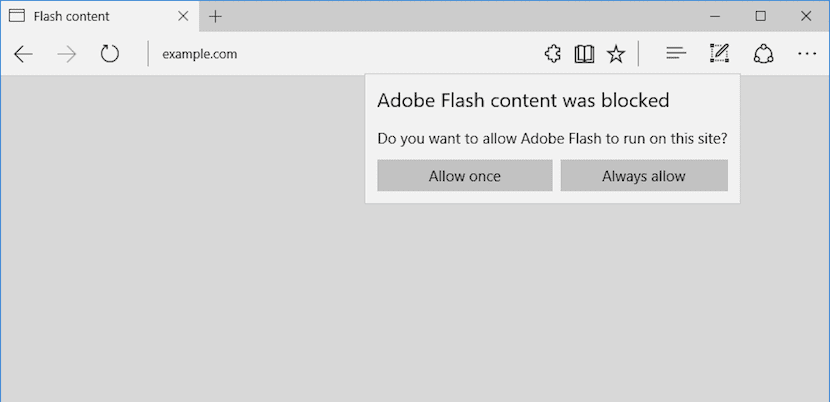
Flash technology, which came a few years ago to practically become a standard on the Internet, has seen how in these last two years it is beginning to be a technology to avoid, due to the security problems derived from the software necessary to load content from this type. Also, the arrival of HTML 5, which allows you to create the same type of content, but much lighter and faster loads It has been another reason for the early disappearance of flash on the internet. Finally, Microsoft and Google have just officially announced the obituary of Flash in their browsers, ceasing to support this technology by default. In fact Chrome 55, the latest version of Chrome available, no longer loads any content created in flash.
Users who want to visit a page created with this Adobe technology, will have to manually enable its loading, exposing themselves to the risks that this entails, risks that the developer himself recognized a few months ago, even recommending that people stop using it. . Microsoft continues to lag behind Chrome as currently only users of the Insider program, It already has the deactivated option available and they do not play Flash content.
The next Windows 10 update, Creators Studio, will offer us the final version of Edge with the native and default limitation of blocking content created with this technology. Since the release of HTML 5, browser developers are focusing on improving both the load and resource management of this technology, in addition to security that prevents third-party access through security bugs, something that has happened to Flash in the latest versions of its player that it has released. Firefox, the third in contention, also does not allow Flash playback natively unless we activate it manually.